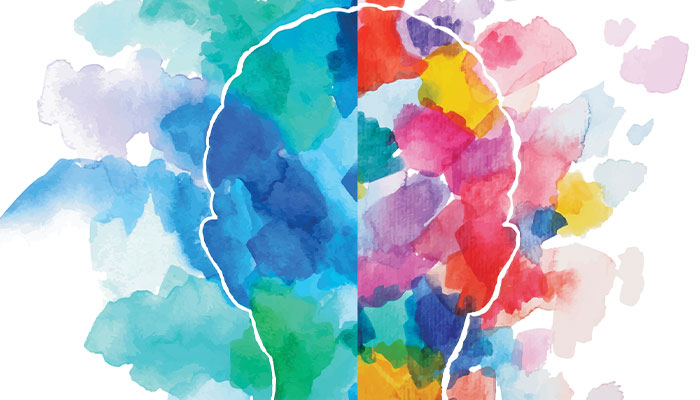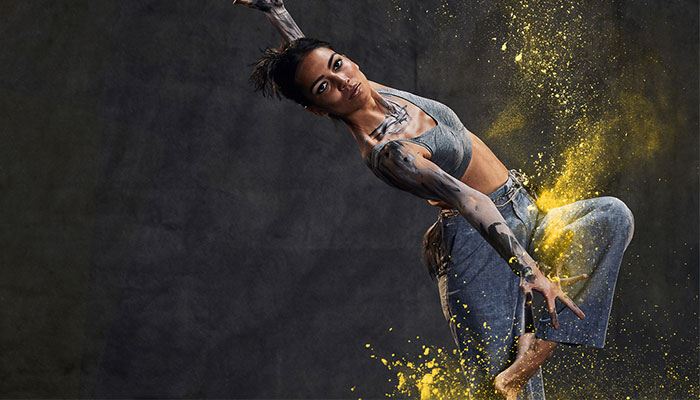No matter how enlightened a society may view itself, taboos exist and are deeply ingrained. But in times of life-changing crisis they become more visible, says taboos researcher Dr Sabine Krajewski. “This actually presents a chance for a society to change,” she says.
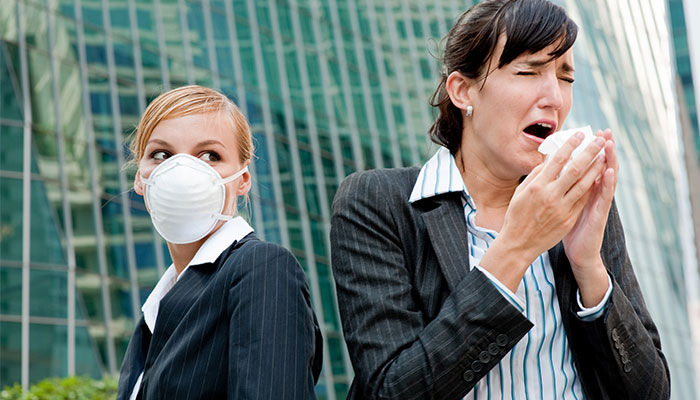
Excuse you: the way we are expected to sneeze and cough in public has likely changed forever.
From domestic violence to mental illness, taboo subjects have been pulled into the open, impossible to ignore, as the pandemic has upended life as we know it.
“Once you talk about a taboo, it is the start of lifting it, and dealing with it as an issue,” Krajewski explains.
“All cultures have taboos. They are negative conventions in a society – things one doesn’t do or talk about. And they are always context-related.
To decide which taboos are worth having and which ones we should dismantle, is sometimes difficult.
“In Western cultures particularly we see taboos as bad things we should get rid of, and very often that is true but not always. They also protect a society – imagine if there were no taboos and you could ask anything you want in any situation; it would be pretty terrible.
“But to decide which taboos are worth having and which ones we should dismantle, is sometimes difficult.”
Krajewski, whose research has explored taboos in relation to silence, spitting, menstruation and menopause, runs a workshop titled ‘Taboo: health issues around the world’, as part of Macquarie University’s Global Leadership Program.
Since the pandemic struck, the workshop has been in demand, with students eager to explore taboos in relation to COVID-19.
Here are some of the new taboos the workshops have identified that may be appearing – and old ones the pandemic may be helping to erode.
Social etiquette
The death of the handshake may have been greatly exaggerated, Krajewski believes. Rather, it is fear of disease-carrying saliva and respiratory droplets that may change social behaviour more permanently.
Spitting in particular is set to become even more entrenched as a taboo, Krajewski says, while coughing and sneezing – largely involuntary acts we paid scant attention to before – have joined it in the cross-hairs.
“Spitting is a social taboo in many countries, but during this time it becomes a real taboo, and my workshop students tell me they feel they get looks that are a mixture of fear and disgust even if they sneeze or cough.”
Humans have known for around 150 years that droplets transmit disease – there are still old ‘No Spitting’ signs in London Tube stations, posted when tuberculosis was a public health issue and spitting was forbidden, Krajewski says. But the behaviour has endured – think of football players expectorating on the field and cricketers polishing balls with their spit, both types of practices that could now disappear.
By contrast, sneezing into our elbows rather than hands is likely here to stay, as well as staying home if we have the sniffles.
“There are incidents of people who have spat on police or hospital staff, which has never been seen as a polite thing to do of course, but whereas normally you would get a fine, now you can be incarcerated because it shows an intent to transmit a disease … so it makes this taboo, which is connected to a heightened sense of how important hygiene is, stronger.”
Work and unemployment
Asking people what they do for work is a common conversation opener, but Krajewski’s workshop students believe this may become taboo as people lose their jobs, or are forced into completely different fields of work because their industry has so few opportunities.
Being on Centrelink used to have the connotation that you either don’t want to work, or you don’t get a job because you’re not good enough, but right now that just is not the case.
“Nobody previously would think twice about asking that question, but now people start thinking about whether it might hurt the other person’s feelings; might open a wound,” Krajewski says.
On the flip side, receiving government assistance may become less of a taboo given the number of people who have lost their jobs and been forced to turn to Centrelink.
“Being on Centrelink used to have the connotation that you either don’t want to work, or you don’t get a job because you’re not good enough, but right now that just is not the case because so many people have been laid off and likely still will be in the future.”
Cruising
During the early months of the pandemic, the world watched in horror as cruise ships became outbreak epicentres, damaging the industry’s reputation possibly beyond repair.
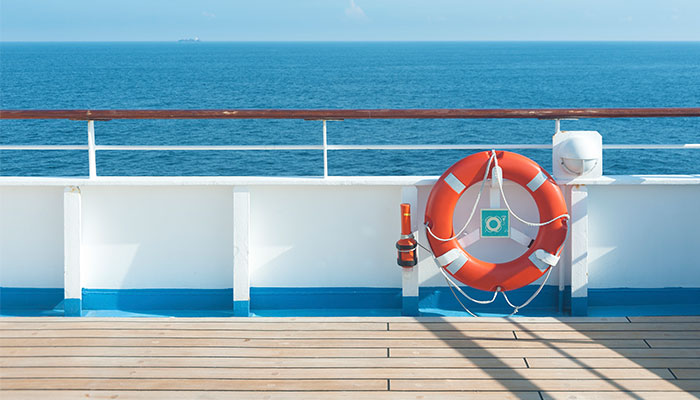
Rough waters: cruising may in future be a holiday devoid of bragging rights.
“People who work in public health will tell you that anything breaking out on a cruise ship is a recipe for disaster; there is no way you get away unscathed,” Krajewski says.
“If you are going on a cruise holiday in the future, it might be something you don’t tell the neighbours, because it will be embarrassing.”
Domestic violence
Domestic violence is a global taboo which has been brought further into the open by COVID-19 as isolation in the home, job loss, home-schooling and increased use of alcohol all contribute to an increase in its incidence. It is a very sensitive subject where the taboo protects the perpetrator, not the victim, Krajewski says.
“On the one hand the pandemic might dismantle the taboo because it is in the open and we have to discuss it because it is such a big problem; on the other hand, struggling economies will have fewer resources and domestic violence may not be the first problem that will be taken care of.”
Mental health
Mental illness is another global taboo, but Krajewski says widely felt anxiety due to the pandemic may bring a new level of empathy and understanding around mental health issues
“Everyone experiences some level of anxiety in these times because we have an uncertain future, maybe anxiety about your own health, your loved ones’ health, about having a job, everything.
“If you experience this anxiety and you know it is mental health related, then maybe it also creates empathy, so it might be a positive outcome that mental health is more discussed and therefore becomes less taboo.
Australia had made a good start discussing mental health in the media before COVID-19, as it had with domestic violence, "but this may accelerate because all of a sudden, everybody knows what it is, and even employers reach out and say that we have to look after each other and so on, which wasn’t the case before so much.”
In the same way, the taboo of loneliness could start breaking down as more people experience it during lockdowns and it becomes a more widely discussed social issue. Corona also shows us room for improvement in how we protect our old people in nursing homes, Krajewski says.
Inequality
Prosperous Australians have never thought too hard about factory workers and the environment in which they labour, but COVID-19 outbreaks in meat processing plants in several countries have forced attention onto their crowded, cold working conditions, and the fact that not all of us have the same choices during the pandemic.
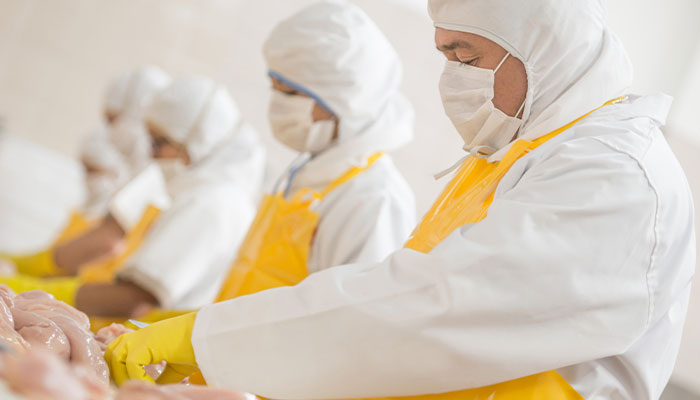
Hidden workforce: Coronavirus has hit meat processing plants hard, forcing into the open the fact that not all of us have the same choices.
“When you buy a steak, you don’t think about the workers there and what happens if we have animals and nobody to process them. All of that is taboo in a sense that it is hidden and now we have to deal with it,” Krajewski says.
They are also among the workers who have not had the option to work from home, and some may be illegal and therefore have no access to JobSeeker or JobKeeper in the event they fall ill and cannot go to work.
- What happens when surgical tools are left inside a patient
- The radical 1970s and the Royal Commission Australia forgot
“So the fact there are parts of the society that are not really in the same situation as the rest of us is now coming out in the open,” Krajewski says.
“There are lots of things we don’t want to see and we push them out of our minds, because if we thought about those things every day it would be very hard to live.
“But if it is discussed that is good; it can be a chance for society to create more equity.”
Dr Sabine Krajewski is a Senior Lecturer in the Department of Media, Music, Communication and Cultural Studies

